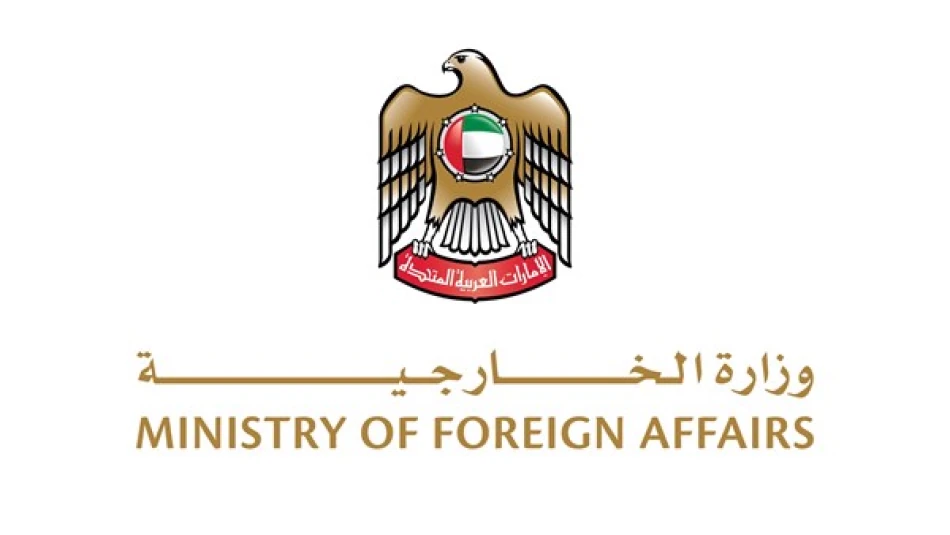
UAE Condemns Netanyahu's Remarks on Palestinian Displacement, Backs Egypt's Efforts
**UAE Condemns Netanyahu's Gaza Displacement Comments as Regional Powers Rally Behind Two-State Solution**
The United Arab Emirates has issued a sharp condemnation of Israeli Prime Minister Benjamin Netanyahu's recent statements regarding Palestinian displacement from Gaza, marking another instance of Gulf nations distancing themselves from Israeli policies despite ongoing normalization efforts. The UAE's statement reinforces its support for Egypt's mediation role while positioning Palestinian statehood as a non-negotiable cornerstone of regional stability.
UAE Takes Diplomatic Stand Against Forced Displacement
In a strongly-worded Foreign Ministry statement, the UAE characterized Netanyahu's comments on Palestinian displacement as a "serious extension of occupation policies" and a "flagrant violation of international law and UN resolutions." The Emirates specifically praised Egypt's ongoing efforts to support Palestinians and prevent forced migration, highlighting Cairo's crucial role as a mediator in the conflict.
The UAE's position reflects a broader trend among Arab nations that normalized relations with Israel under the Abraham Accords, where diplomatic ties have not translated into blanket support for Israeli military actions. This measured approach allows Gulf states to maintain their strategic partnerships while preserving credibility with Arab populations.
Regional Implications for Middle East Diplomacy
Abraham Accords Under Pressure
The UAE's criticism comes at a delicate moment for the Abraham Accords framework, which normalized relations between Israel and several Arab nations starting in 2020. While economic and security cooperation continues, the current Gaza conflict has forced signatory countries to publicly differentiate between bilateral relations and support for specific Israeli policies.
Unlike previous conflicts where Arab nations might have suspended diplomatic ties entirely, the UAE's approach demonstrates a more nuanced diplomatic strategy—maintaining channels while applying pressure through public statements and international forums.
Egypt's Strategic Position Reinforced
By explicitly supporting Egypt's mediation efforts, the UAE is strengthening Cairo's position as the primary Arab interlocutor in Palestinian affairs. This backing is significant given Egypt's unique role controlling Gaza's southern border and its historical experience managing Israeli-Palestinian ceasefires.
Egypt's approach of preventing Palestinian displacement while facilitating humanitarian aid aligns with broader Arab concerns about refugee flows and regional stability. The UAE's endorsement signals Gulf financial and political support for Egypt's costly mediation role.
Long-term Strategic Calculations
The UAE's statement frames Palestinian rights not as a "political choice" but as a "moral, humanitarian, and legal commitment," language that suggests a hardening of positions around core issues. This framing indicates that Gulf states view Palestinian statehood as essential for their own long-term regional security interests.
The emphasis on UN resolutions and international law also reflects the UAE's broader strategy of positioning itself as a responsible global actor, particularly as it seeks expanded roles in international organizations and economic partnerships beyond the region.
Economic Considerations
For the UAE, maintaining this balanced position serves economic interests as well. The Emirates has significant trade relationships across the Middle East and cannot afford to be seen as completely aligned with Israeli policies that generate widespread regional opposition. This approach preserves the UAE's role as a neutral hub for business and diplomacy.
The statement ultimately reinforces that while normalization has created new diplomatic channels, it has not fundamentally altered Arab positions on Palestinian statehood—a reality that will likely shape future peace negotiations and regional security arrangements.
Most Viewed News

 Layla Al Mansoori
Layla Al Mansoori






